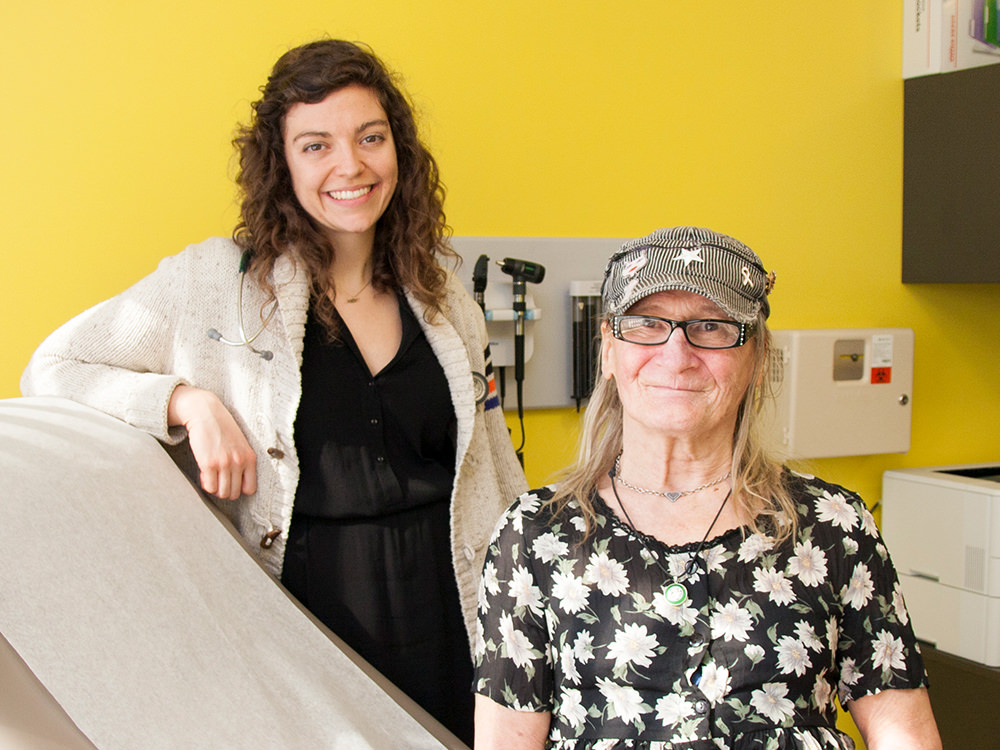When Sabrina steps out the door of her apartment at the Langdon & Anne Simons Senior Apartments, she has only to walk down the hallway to meet with a registered nurse or primary care practitioner.
Sabrina left her birthplace in New Jersey when she was 17 because there was no tolerance or understanding for a transgender teenager in her small hometown. When she was young, she was taken to a psychiatrist and narrowly avoided being institutionalized. “After that, I just got better at hiding,” she said. “But there’s nowhere to hide anymore.”
Sabrina, who recently turned 70, moved out of homelessness and into her Plymouth apartment seven years ago. In that time, she’s found crucial support from Plymouth and Neighborcare Health staff who work at Simons Senior.
In 2016, Plymouth expanded our partnership with Neighborcare Health, a local organization that provides comprehensive healthcare to families and individuals who have difficulty accessing care—such as the men and women Plymouth serves. We created new medical offices in two buildings, and Neighborcare Health added more services, including primary care and mental healthcare.
In Seattle, the average age of death for people experiencing homelessness is 48 for men and 46 for women. Their health challenges range from high rates of mental illness, heart disease, and cancer to injuries from physical and sexual assault. Homelessness is a public health crisis.
At Plymouth, we see the ongoing health ramifications of homelessness every day. Working with our partners to reduce the health disparities experienced by our residents improves their lives and helps them stay in housing.
Kelly Trupp, who has been an RN with Neighborcare Health for 8 years, says the gateway to good medical care is trust. “People who have been homeless have heard ‘no’ so many times,” she said. Homelessness leads to one trauma after another. Because of this, Kelly said they lose trust in the medical system. She said people end up feeling like they aren’t worth the trouble, and lack the confidence to advocate for their health.
To successfully engage someone in care, you have to build a connection with them. So, like Plymouth, Neighborcare Health staff meet their patients wherever they are. Sometimes this means knocking on doors repeatedly, even if the resident says “no” to begin with.
And sometimes, as Primary Care Practitioner Anina Terry describes, it means cracking casual jokes. “You’d be surprised how often people tell jokes to avoid talking about their health,” she says. Those jokes are indicative of burgeoning trust, and with patience and gentle persistence, Anina, Kelly, and the other Neighborcare Health team members create bridges to better health—just as they’ve done for Sabrina.
